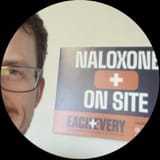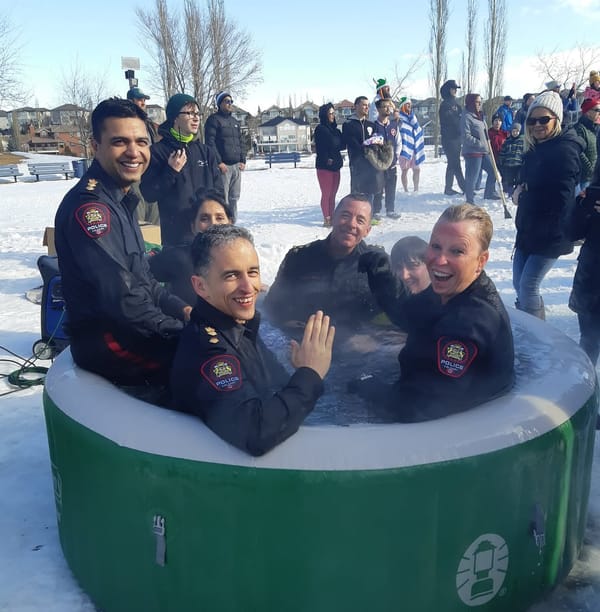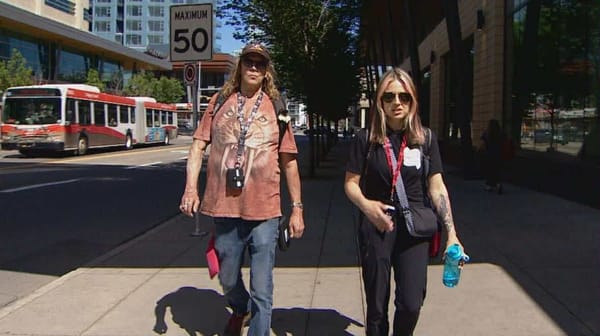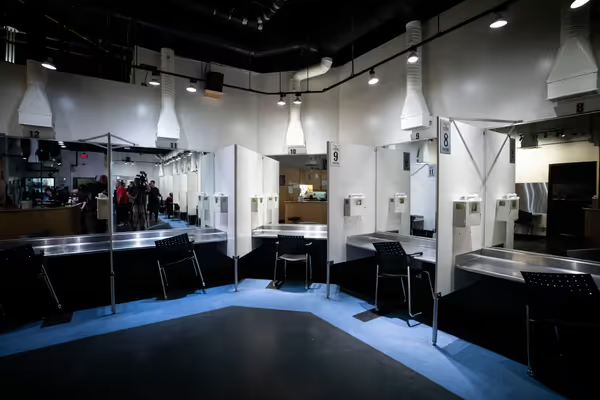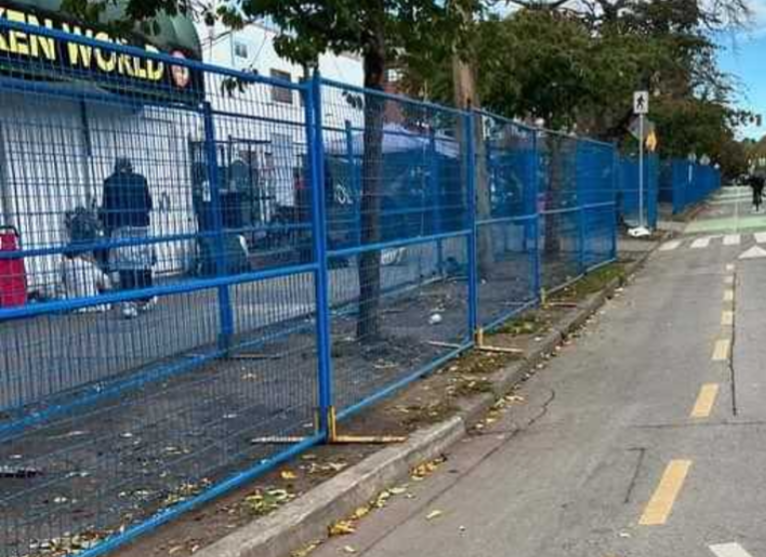Remembering Vee Duncan
An Indigenous safe supply and housing advocate who spent years at the frontline of multiple convergent crises, Vee will be missed for their raw honesty and unrelenting love.
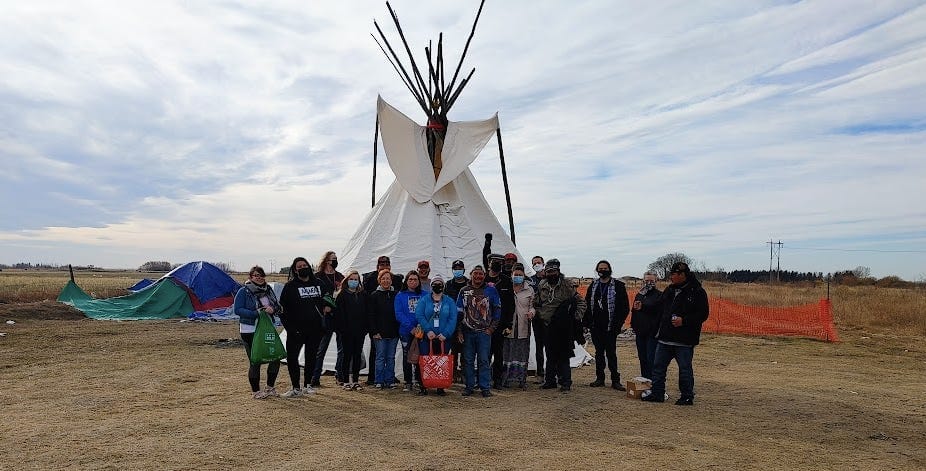
I first met Vee Duncan (they/them) on a chilly October morning two months after the now-standard playbook of town council and UCP political deflection resulted in the closure of Wetaskiwin’s only shelter. Sixty people were run out of town overnight.
I travelled with AAWEAR to visit the unmanaged refugee camp in the field behind the town’s Walmart. We met up at Rock Soup Greenhouse & Food Bank, led by Craig Havaaldson to provide safe space for 2SLGBTQ+ youth and local unhoused folks.
Rock Soup is a special haven in smalltown Alberta, supported in part by local farm surplus and, nowadays, helping to provide some measure of food security across the province. Rainbows colour every corner of the facility.
A few teens huddled together in the corner. Three or four people pushed shopping carts, grabbing basic necessities from carefully stocked shelves, no questions asked.
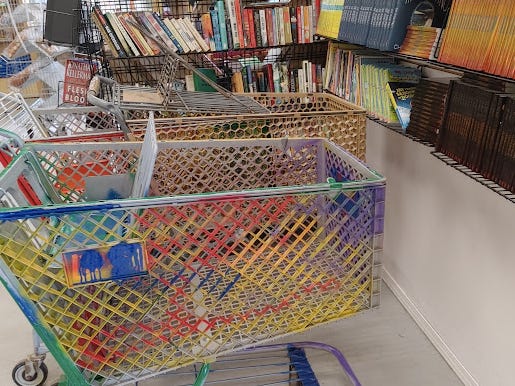
It was 2021, and the town had just driven out its unhoused residents.
Vee was lighting a smudge and inviting us into a circle. They led a prayer and encouraged us in turn — Indigenous first — to draw the smoke over our heads, necks and shoulders.
We piled into cars and drove out to the encampment.
Two hundred metres of dirt road was the bridge between have and have-not. We stepped out of our warm comfort and all around us were tents, tarps, battered chairs, modified pallets, fireplaces, a small row of outhouses and people grouped among the various parts of the camp. It was utterly exposed to the prairie wind.
Nurses from the shuttered shelter, banned by town council from supporting the camp, stood at the fenceline, not daring to step into the camp which was being monitored from afar by what looked like an RCMP truck.
We looked awkward as hell. Vee walked up to me, rolling their eyes and holding out a pack of smokes. “Here, go hand these out. They won’t bite.”
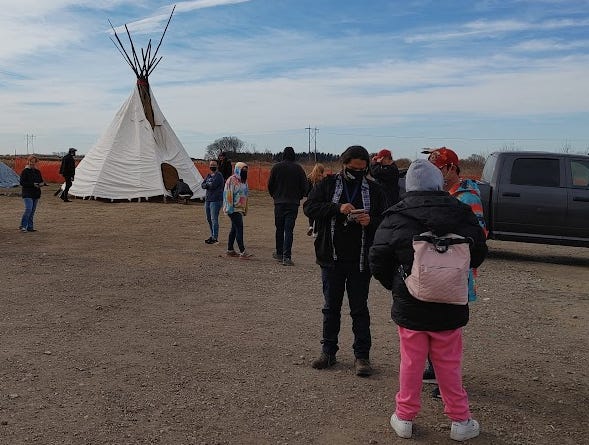
Within a few minutes, we had scattered to different corners of the camp. The AAWEAR team was hauling bags of clothes out of the cars and ripping them open, while Wetaskiwin’s campers filed in.
We’d raised enough money to have a tipi brought in for shelter. The team was putting the last of the anchors in the ground. Vee and Craig beckoned me in. A fire had already been lit and it was absolutely roasting inside. Without thinking, I asked Vee if it would be warm enough when the weather dropped into winter.
“People have lived in these for thousands of winters. Didn’t you know?”
But the tipi — a visible reminder to the locals of their treaty obligations — would only sleep twelve. That left nearly four dozen people camping in the field.
Seven months previous, Vee hauled a shopping cart from Calgary to the legislature in Edmonton as a demonstration of solidarity with Alberta’s unhoused people and to raise awareness about the realities of transitioning out of prison. Nationally, over 30% of incarcerated people are Indigenous (despite Indigenous people making up only 5% of the national population), but across the prairies, these figures are far higher.
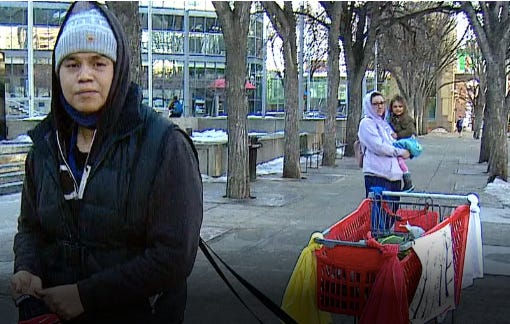
This spring, I joined Vee on a group call with outreach groups across the province sharing their challenges. After a certain point, Vee had heard enough and spoke up: “What are we doing here? We’re all sitting behind our screens, comfortable and warm, well fed, and talking, talking, talking. My people are out there dying.” They continued uninterrupted for about fifteen minutes.
Eventually, they signed off the call to go prep a big batch of sandwiches they’d feed people on outreach that afternoon with Nék̓em, the organization they founded. Food — real food, prepared by and for real people — was central to Vee’s approach to outreach. To them, food was dignity, even for just a few bites.
I didn’t see them again. But their point haunted me afterward: what are we doing here?
What are we willing to do to stop this?
A couple months before that call, I put Vee in touch with CBC Edmonton’s Taylor Lambert. We don’t know Vee’s cause of death, but Lambert’s story carried a worthwhile perspective from Vee on how to keep their community safe:
When Duncan relapsed most recently, they were glad to have access to pharmaceutical-grade opioids. They don't want to use drugs and, after seeing many friends and acquaintances die recently, they know the risks posed by the adulterated drugs on the street.
Duncan worries what might happen if they relapse again and a safe supply is unavailable to them.
"The pharmaceutical route is safer because I know where it's coming from," says Duncan. "I know that it's not put together in someone's basement in the bathtub."
Goodbye, Vee. I hope you find warmth, comfort and good food wherever your journey takes you next.
To help bring Vee home to Williams Lake, the Nék̓em Facebook page is requesting that funds be sent to problem.solver@live.ca.

